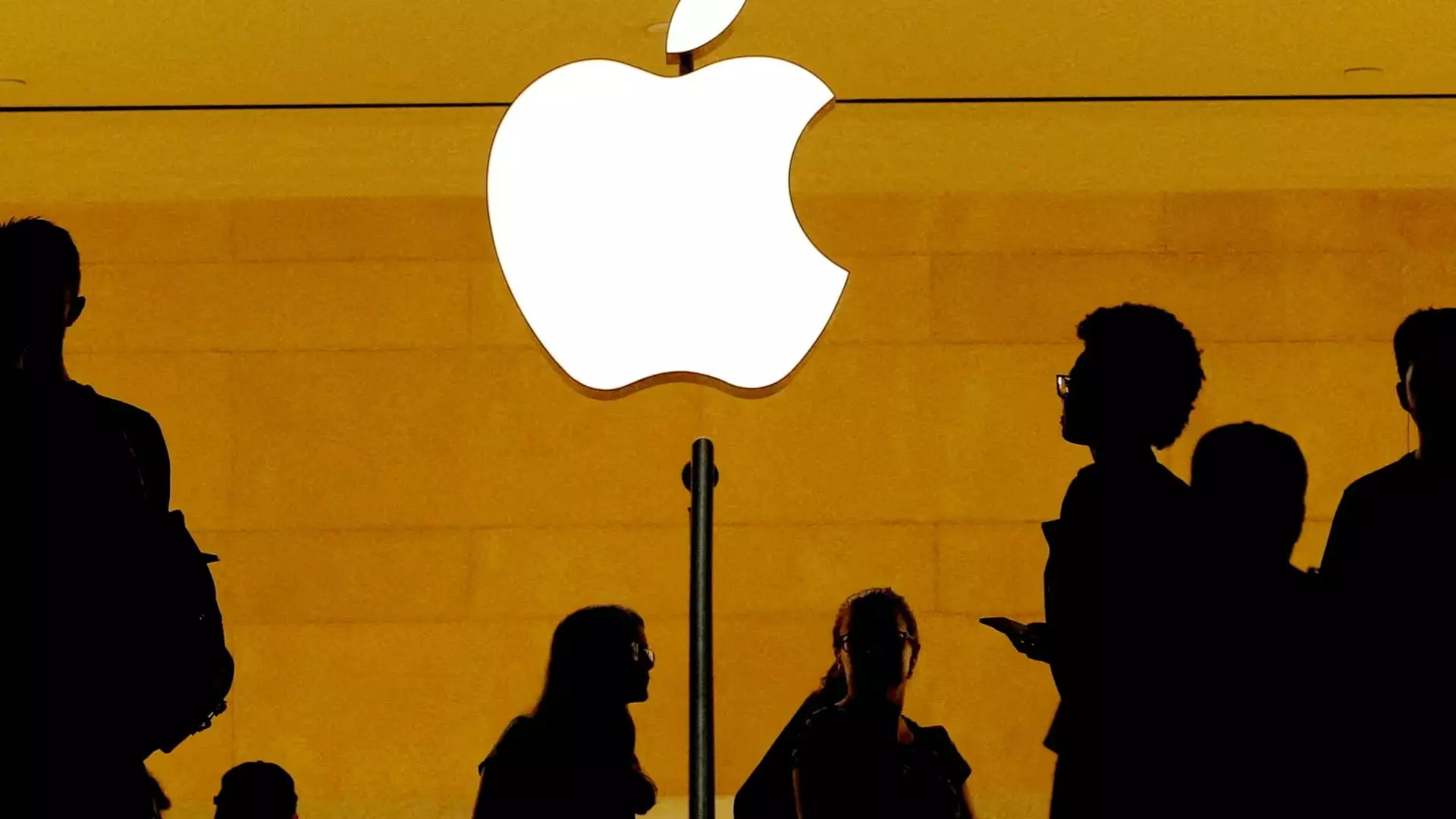In the midst of a fluctuating economic landscape, companies frequently find themselves at the mercy of market sentiments following earnings reports or strategic announcements. As investors brace for the opening bell, a number of corporations are making headlines, revealing both positive and negative performances that could influence broader market trends. This article dissects the recent stock movements of major companies, highlighting factors contributing to their respective upswings and downtrends.
Alphabet’s Struggles Amid AI Expansion
Alphabet, the parent company of Google, witnessed a notable 7% tumble after reporting fourth-quarter revenues of $96.47 billion, narrowly missing analysts’ expectations of $96.56 billion, as per LSEG. This underperformance raised red flags among investors, particularly as Alphabet concurrently announced a massive $75 billion investment plan for its artificial intelligence initiatives in 2025. While the commitment is higher than the $58.84 billion consensus estimate by FactSet, the failure to meet revenue expectations during a critical quarter weighs heavily on market sentiment, highlighting a precarious balance between aggressive investment strategies and revenue generation.
Uber’s stock experienced a dip of 5% in response to cautious forecasts regarding potential impacts from a strengthening U.S. dollar on first-quarter gross bookings. Despite posting fourth-quarter revenues of $11.96 billion, surpassing estimates, the company’s warnings about foreign exchange headwinds have prompted concerns. Such vulnerabilities exemplify the broader challenges ride-hailing services face in a fluctuating economic environment, forcing investors to reevaluate their growth trajectories in the wake of external market influences.
Chipotle and Mixed Sales Performance
Chipotle Mexican Grill encountered a reduction in share value by approximately 4.9% after failing to impress Wall Street with its same-store sales growth metrics. Although the fast-food chain managed to meet revenue expectations and beat earnings per share estimates, its guidance for future sales suggests growth in the low to mid-single digits for fiscal 2025. Investor confidence wavered as the market recognized the limitations of Chipotle’s growth in a highly competitive sector.
PDD’s Bump from Iternational Regulations
The Chinese e-commerce powerhouse PDD, parent company of Temu, saw its shares plummet nearly 7.1% following the U.S. Postal Service’s temporary suspension of inbound packages from China and Hong Kong. This development threatened PDD’s market operations, highlighting the fragility of international trade relations. Fortunately, the USPS later reversed this decision, but the volatility surrounding this issue demonstrates how geopolitical factors can immediately impact stock performances.
Apple Under Scrutiny from Regulators
Apple’s shares pulled back by 2% as reports surfaced indicating that Chinese regulators are contemplating an investigation into the company’s app store fees and policies. This potential scrutiny from one of the world’s largest markets sends ripples of concern throughout the investor community, questioning Apple’s future pricing and regulatory landscape in China—a critical aspect of its global operational strategy.
In contrast, Johnson Controls International experienced a noteworthy increase of nearly 8% in early trading, buoyed by quarterly results that exceeded expectations. Demonstrating resilience, they reported earnings of 64 cents per share against a backdrop of rising revenue. Similarly, Lumen Technologies’ stock surged by 9.3% following robust fourth-quarter results, illustrating that positive earnings reports can significantly influence market performance when aligned with investor expectations.
Mondelez International’s shares fell by over 4% after the company reported fourth-quarter earnings that underperformed Wall Street’s consensus estimates. The future looks particularly uncertain, as it anticipates a 10% decline in adjusted earnings per share due to unprecedented cost inflations affecting key ingredients. Match, another notable player, dropped by 9% after its fourth-quarter adjusted operating income fell short of estimates. Such declines illuminate the repercussions of insufficient operational performance and reduce investor willingness to hold shares amidst grim forecasts.
As we reflect on these headlines and the reactions that followed, it is evident that corporate performances and forward-looking statements drive investor sentiment in unique ways. The interplay between earnings, investment strategies, and global economic conditions illustrates the complexity of today’s market landscape. Investors must approach the stock market landscape with a keen eye, ready to adapt to the swift currents of financial news that shape corporate valuations and overall economic trends. The upcoming period will be crucial as companies navigate the uncertainties ahead while striving to bolster their market presence.

